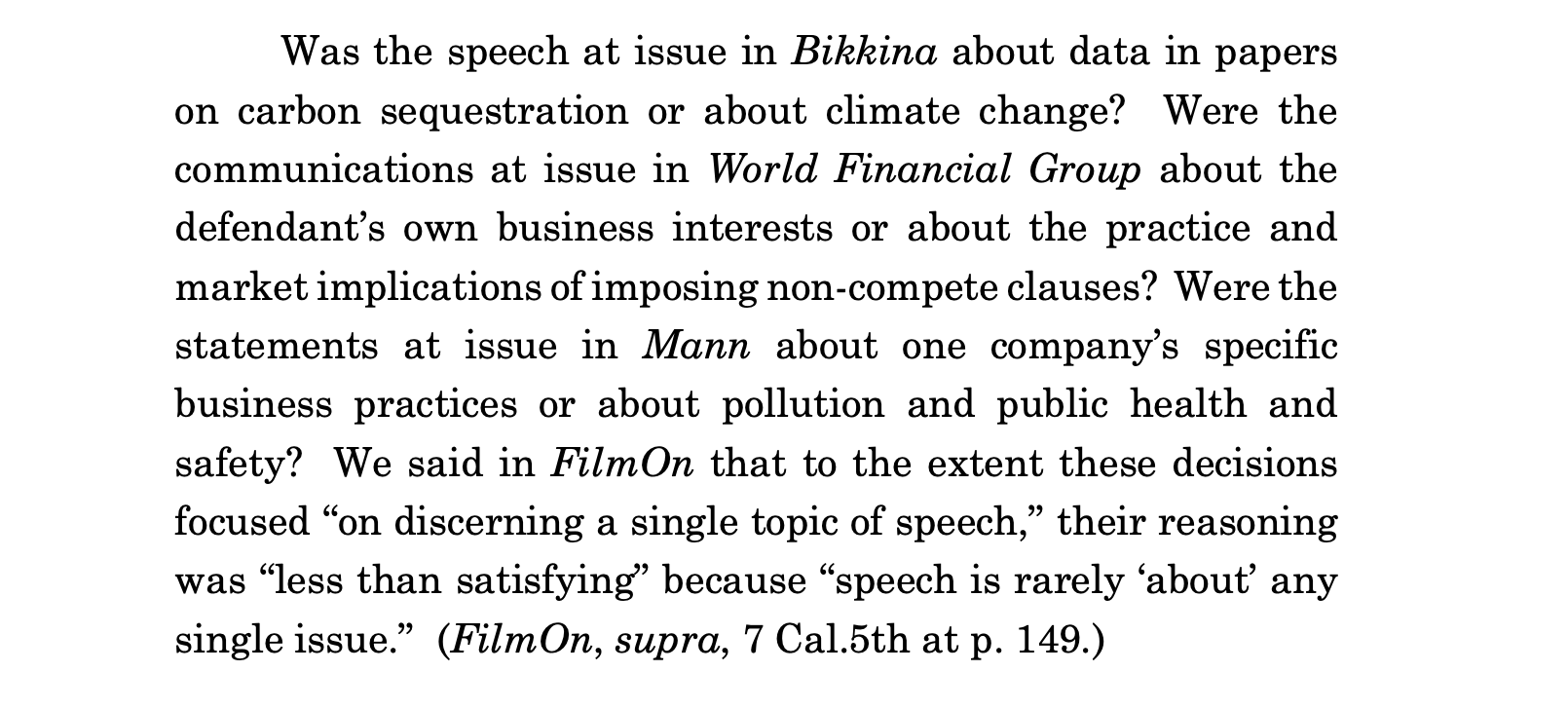Today, in a long-fought dispute, the California Supreme Court ruled that California’s anti-SLAPP statute protects a protest outside of the home of the CEO of a major “fix-and-flip” company.
My office represents an immigrant family who lost their house to foreclosure after the financial crisis. Wedgewood—the nation’s largest “fix and flip” operation—bought it. When the family regained employment and tried to buy it back, Wedgewood first led them on and then ignored them.
The family enlisted the help of the Alliance of Californians for Community Empowerment Action (ACCE)—one of the state’s largest housing rights organizations. Neighbors came to the family’s aid, holding protests in the front yard. La Opinón—the country’s largest Spanish-language newspaper—twice covered the family’s efforts to keep their home. Huffington Post covered it, too.
But Wedgewood moved forward with the eviction. The night the family was evicted, together with ACCE, they picketed outside Wedgewood CEO Greg Geiser’s $3M Manhattan Beach house. About thirty people attended. They sang songs, gave speeches, and chanted. The whole thing lasted an hour. Police observed and didn’t even issue a warning or a single instruction to the protesters.
Two days later, CEO Geiser sued the family and ACCE’s Los Angeles director Peter Kuhns, asking the court prevent the family and ACCE from protesting outside his office or home. Geiser was, of course, represented by a big Century City law firm.
Geiser also wrote to the dean of Occidental College, trying to get the author of the Huffington Post piece fired or reprimanded, in an effort to intimidate him into taking the piece down. Thankfully neither the college nor author was intimidated.
When the family and ACCE refused to agree to refrain from criticizing Wedgewood in the future, Geiser dismissed the suit in a fit of spite. But before serving the dismissals, Wedgewood issued a press release about the dispute and the settlement breakdown to get in front of the story in the media.
A spokesman for Wedgewood also published this hit piece on ACCE and the family in the alt-right Breitbart News, trying to tie them to voter fraud, tax increases, “the early release of criminals,” and (the irony!) “millionaires and hedge-fund managers.”
Despite the media attention and dozens of people participating in the protest, the lower courts all denied the anti-SLAPP motions saying there was no connection to an issue of public interest. According to the court, all the media attention and other protesters focused on a “purely private” dispute.
Today, after six years of appeals, The California Supreme Court unanimously held that the anti-SLAPP statute protected the protester’s activity. “The Court of Appeal erred in holding that the demonstration outside Geiser’s home did not constitute speech in connection with a public issue under the anti-SLAPP statute’s catchall provision,” Justice Goodwin Liu wrote for the unanimous court.
Adopting our argument, the Court found that speech about private disputes can often implicate broader issues, so it doesn't really matter that speech is about a single dispute.
We argued all along that #MeToo was essentially a million stories about private experiences that nonetheless implicated much broader issues of rampant sexual harassment. The Court adopted that analogy.
And while the Court of Appeal also criticized us for not putting in the record exactly what the protesters' signs said, or what their chants were, to establish a sufficient level of abstraction tying their speech to a broader, more academic type issue, we argued that type of content isn't always going to exist because some speech is symbolic. We argued that a black arm band itself doesn't have "content," but we know what it means in its context because we know who Mary Beth Tinker is and we know her story. The Court adopted that, too.
This decision puts some guardrails on the risk of judges determining an issue narrowly or broadly to reach the outcome the judge wants to reach. Because it’s easy to do so. If you wanted to really be cynical about it, you could say Rosa Parks had a personal dispute with her bus driver. But of course that is nonsense.
The Court today says you can't do that. You have to look to the context and take a broader view of what the "issue" is to determine whether the anti-SLAPP statute applies. So a judge can't get rid of the motion by defining the "issue" overly narrowly.
I’m thrilled with this win, especially as a vindication of six years of appellate litigation.





